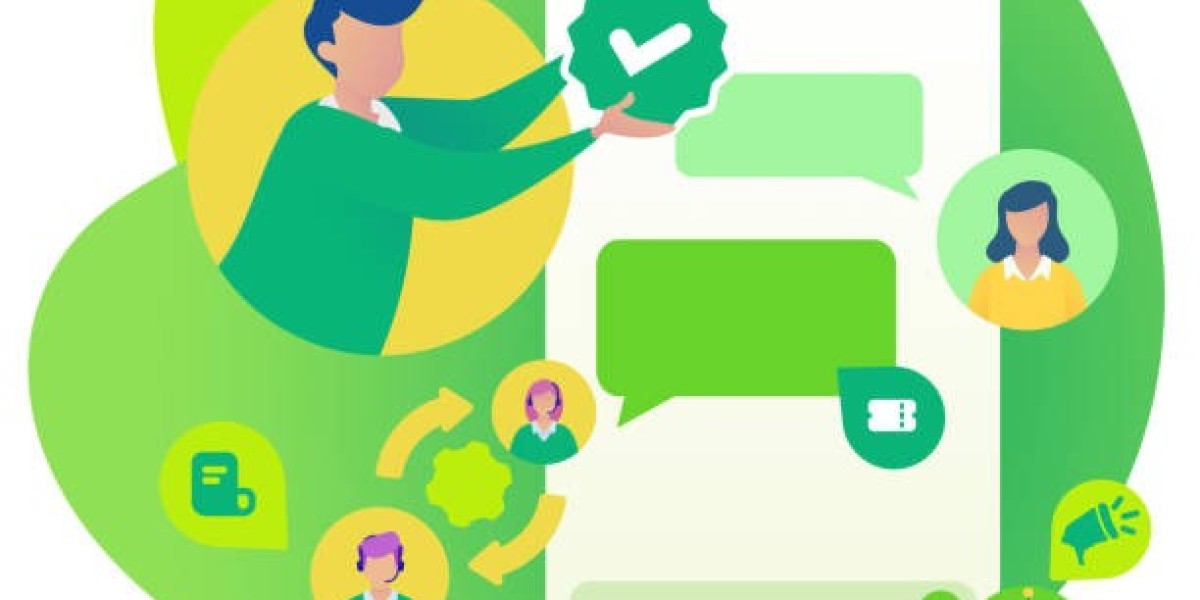Ready to elevate your business communication? Meet the WhatsApp API—your new ally in connecting with customers! In an age where instant communication is essential, WhatsApp provides an incredible platform for real-time audience engagement. Picture simplifying your operations, enhancing customer support, and supercharging your marketing all in one tool. Sounds like a dream, doesn’t it?
This dream is now a reality as more businesses recognize the transformative potential of this powerful tool. Let’s explore how the WhatsApp API is revolutionizing customer engagement strategies across various sectors and how it can work wonders for you!
Innovative Ways Businesses Are Using the WhatsApp API for Marketing
The WhatsApp API is becoming indispensable for businesses aiming to boost their marketing efforts. With its extensive user base and real-time communication features, companies are leveraging this platform in creative ways to engage customers and increase sales. Here are some standout use cases:
Click-to-WhatsApp Ads: Businesses can run Click-to-WhatsApp ads (CTWAs) on platforms like Facebook and Instagram, directing potential customers to their WhatsApp chat. This smooth transition allows for immediate customer engagement, making lead capture effortless.
Smart Ads: With WhatsApp API integration, companies can create Smart Ads that automatically generate effective advertising content based on product URLs. This streamlines ad creation while ensuring relevance, helping to drive sales and attract quality leads.
WhatsApp Buttons on Websites: Adding a WhatsApp button to your website can enhance conversion rates by providing an easy way for customers to reach out directly. This feature enables visitors to click and start conversations, facilitating immediate interaction.
Sharing WhatsApp Links: Businesses can create and distribute WhatsApp links across multiple channels. Transforming these links into QR codes can significantly boost traffic when shared on social media, pamphlets, or posters.
Loyalty Programs: Implementing loyalty programs via WhatsApp can help build long-lasting relationships with customers. By sending exclusive offers and updates, businesses can improve customer retention and attract new clients.
Retargeting Campaigns: Companies can use WhatsApp for retargeting campaigns to reconnect with users who showed interest in their products but didn’t complete a purchase.
Multimedia Messaging: The WhatsApp API allows businesses to send rich media like images, videos, and audio clips, enabling the creation of engaging marketing content that stands out.
Personalized Promotions: Tailoring marketing messages based on customer data significantly boosts engagement. Businesses can customize promotions based on previous purchases or individual preferences.
Event Notifications: Companies can leverage the WhatsApp API to send timely notifications about upcoming events or promotions directly to customers’ phones.
Customer Feedback Collection: WhatsApp serves as an effective platform for collecting customer feedback through surveys or quick polls.
Key Use Cases of the WhatsApp API
Customer Support Automation
Transforming Customer Support with WhatsApp
Businesses are using the WhatsApp API to provide instant customer support through automated systems like chatbots. These bots ensure customers receive timely assistance without having to wait for a human agent.Boosting Efficiency
By automating responses to common queries—like order tracking or store hours—companies can minimize human intervention, streamlining support and managing higher inquiry volumes effectively.Example: A logistics company employs WhatsApp API integration to provide real-time tracking updates, while customers can reach live agents for complex issues, ensuring a seamless support experience.
Marketing Campaigns and Bulk Messaging
WhatsApp as a Dynamic Marketing Channel
The WhatsApp API allows businesses to run targeted marketing campaigns, sending promotional offers, event reminders, or new product announcements directly to specific customer segments.Personalized Engagement for Better Results
Personalization is crucial in marketing; the ability to tailor bulk messages enhances engagement. Customized messages resonate more with recipients, increasing open rates and interactions, which in turn boosts conversion rates.Example: A travel company may send personalized flight deals based on customers' past bookings, making their marketing efforts more relevant and appealing.
Transactional Notifications and Alerts
Streamlining Transactional Messaging
With the WhatsApp API, businesses can automate essential transactional messages, such as order confirmations, payment receipts, appointment reminders, and shipping notifications. This keeps customers informed without manual effort.Ensuring Timely Communication
Real-time notifications reduce the need for follow-ups, enhancing customer satisfaction by keeping them updated.Example: An online retail store uses WhatsApp to send instant payment confirmations and shipment tracking links right after a purchase, ensuring a smooth post-purchase experience.
E-Commerce Integration
WhatsApp for an Effortless Shopping Experience
Integrating the WhatsApp API with e-commerce platforms enables customers to browse catalogs, ask questions, and make purchases directly within the chat interface.Increasing Sales Through Direct Interactions
This integration simplifies the shopping journey, allowing customers to shop without leaving the chat. Direct communication can significantly improve conversion rates and create a seamless shopping experience.Example: A fashion brand shares its product catalog via WhatsApp, enabling customers to browse and purchase directly within the chat, simplifying the buying process and enhancing satisfaction.
Appointment Scheduling and Reminders
Simplifying Appointment Management
Service-oriented businesses, like healthcare providers and salons, utilize the WhatsApp API for easy appointment booking, confirmation, and rescheduling through chat.Reducing No-Shows with Automated Reminders
Automated reminders sent via WhatsApp help decrease missed appointments and improve customer retention by ensuring clients remember their scheduled times.Example: A dental clinic uses WhatsApp to send reminders about upcoming appointments, allowing patients to confirm or reschedule easily, improving overall engagement.
Conclusion
The WhatsApp API presents numerous opportunities for businesses seeking to enhance customer engagement across various sectors. Its ability to automate customer support, execute personalized marketing campaigns, send vital transactional notifications, and facilitate e-commerce transactions makes it an essential tool for real-time communication with customers.
At BizMagnets, our AI-powered WhatsApp Business Suite is designed to maximize the potential of the WhatsApp API. We offer comprehensive solutions that help businesses effectively engage customers, optimize marketing strategies, and drive sales. Whether you want to automate interactions or run targeted campaigns, our suite of tools can help your business thrive in today’s competitive landscape.
To discover how BizMagnets can elevate your customer engagement strategies and learn more about our WhatsApp Business Suite's powerful features, visit our website. Explore our blog for more insights, and feel free to book a demo to see how we can tailor our solutions to meet your unique business needs!








